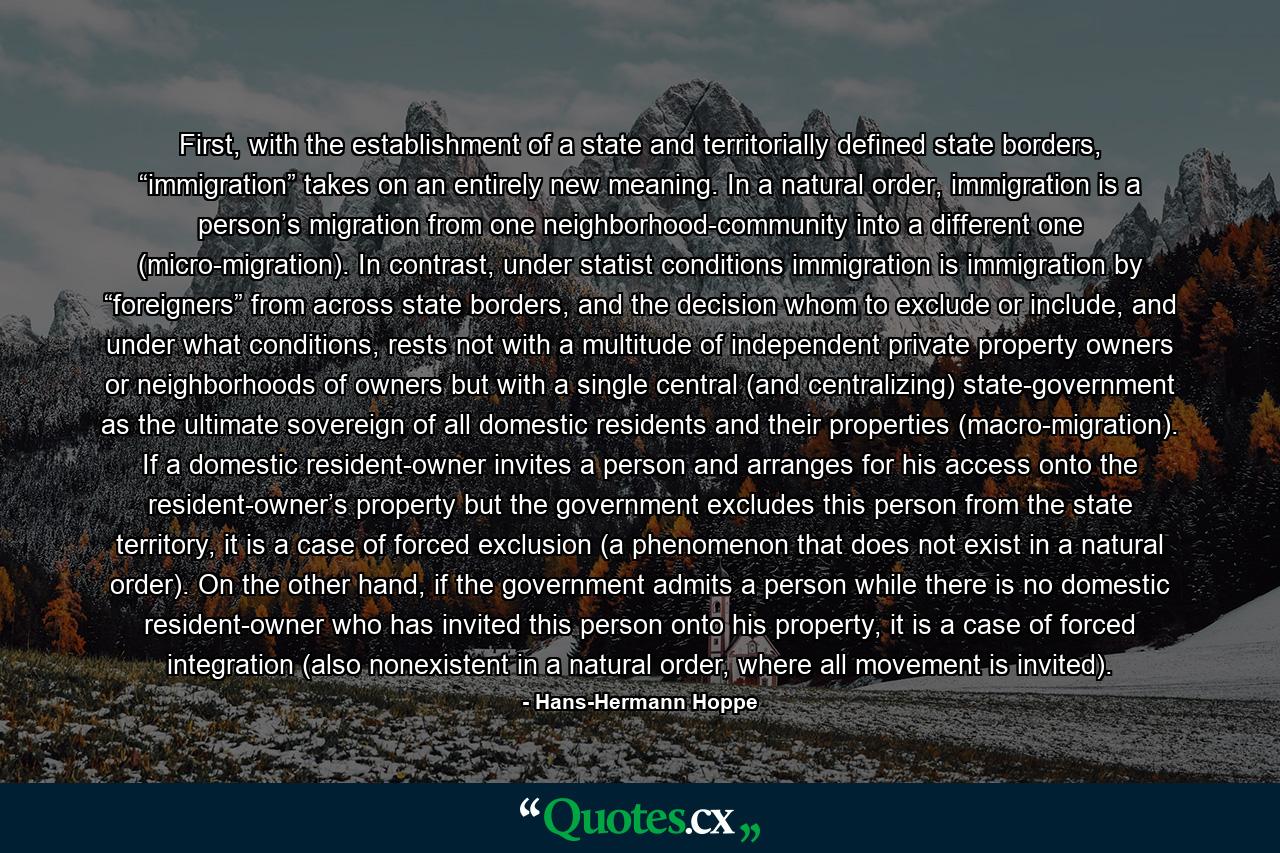First, with the establishment of a state and territorially defined state borders, “immigration” takes on an entirely new meaning. In a natural order, immigration is a person’s migration from one neighborhood-community into a different one (micro-migration). In contrast, under statist conditions immigration is immigration by “foreigners” from across state borders, and the decision whom to exclude or include, and under what conditions, rests not with a multitude of independent private property owners or neighborhoods of owners but with a single central (and centralizing) state-government as the ultimate sovereign of all domestic residents and their properties (macro-migration). If a domestic resident-owner invites a person and arranges for his access onto the resident-owner’s property but the government excludes this person from the state territory, it is a case of forced exclusion (a phenomenon that does not exist in a natural order). On the other hand, if the government admits a person while there is no domestic resident-owner who has invited this person onto his property, it is a case of forced integration (also nonexistent in a natural order, where all movement is invited).
